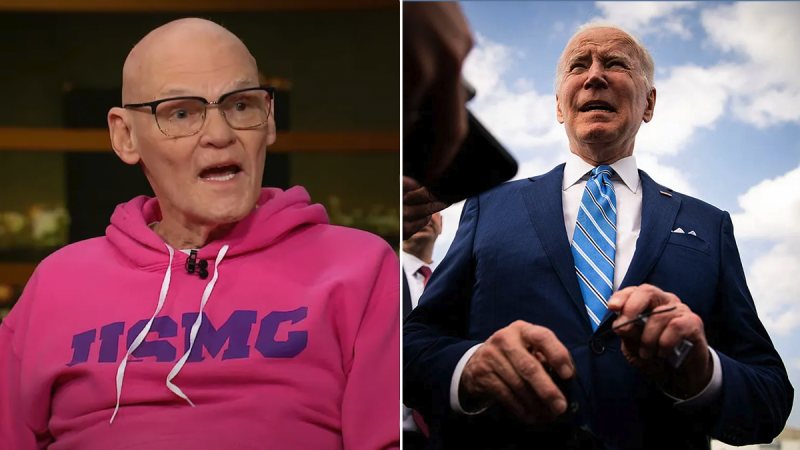Legendary political strategist James Carville argued Saturday that the White House has little confidence in President Biden after he turned down a Super Bowl Sunday interview.
Biden recently declined to take part in the Super Bowl Sunday interview for the second year in a row. The interview is a tradition that began in 2009 with President Obama.
The interview is generally seen as a way for the president to connect with a massive audience that doesn’t usually tune into political conferences. Last year, the Super Bowl between the Kansas City Chiefs and Philadelphia Eagles saw 115 million viewers.
Carville, a long-time Democrat, gave his take on the situation while being interviewed on CNN on Saturday.
‘It’s the biggest television audience, not even close, and you get a chance to do a 20-, 25-minute interview on that day,’ Carville began.
‘And you don’t do it? That’s a kind of sign that the staff or yourself doesn’t have much confidence in you,’ Carville continued. ‘There’s no other way to read this.’
Biden is not the first president to turn down the chance to speak to Super Bowl audiences. In 2018, President Trump declined to sit down with NBC for a Super Bowl interview.
The consultant also opined about Biden’s advanced age, days after the president held a press conference about his mental competence.
‘And he’s not going to do debates,’ Carville said. ‘He is old, I know what it is because I’m almost as old as he is, and it’s never going to get better.’
On Thursday, Biden lashed out at reporters in a press conference after the release of Special Counsel Robert Hur’s report doubting the president’s mental acuity.
‘I’m well-meaning, and I’m an elderly man, and I know what the hell I’m doing,’ Biden said to a question asked by Fox News White House correspondent Peter Doocy. ‘I’ve been president and I put this country back on its feet. I don’t need his recommendation.’
‘How bad is your memory? And can you continue as president?’ Doocy asked.
‘My memory is so bad [that] I let you speak,’ Biden fired back.
Fox News Digital’s David Rutz and Joseph A. Wulfsohn contributed to this report.
